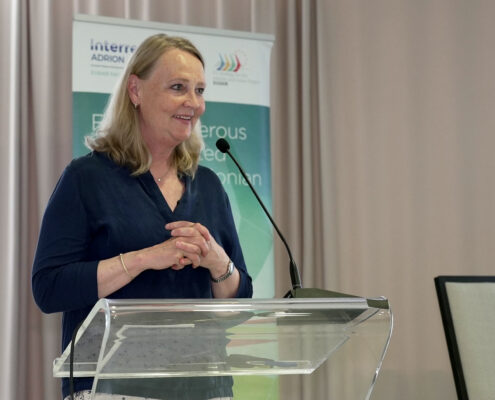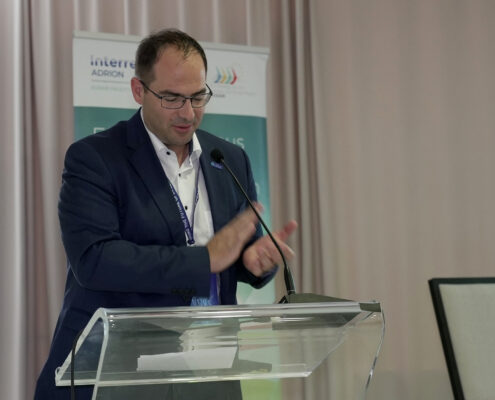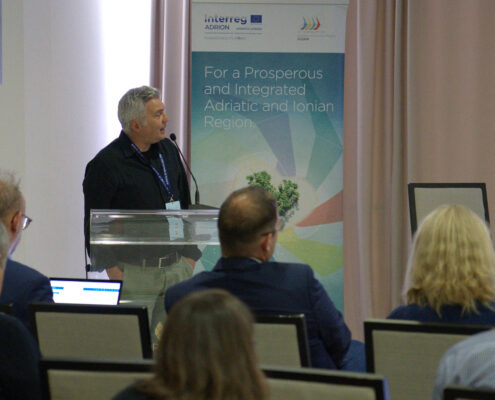9th Annual EUSAIR Forum
Šibenik, Croatia | 15 - 16 May 2024CONCLUSIONS OF PILLAR 3 SESSION
Blue And Green Corridors: Implementation of TSG 3 EUSAIR Flagships, with INTERREG IPA ADRION
The panellists have highlighted the importance of collaborative efforts and the need to respect environmental and biodiversity issues. Their presentations reaffirm TSG 3’s commitment to establishing and investigating green and blue corridors, which are of utmost importance for scientific research. Ensuring safety and security within these corridors, particularly in the face of climate change, remains a primary objective.
The panel's focused on tangible results from a decade-long TSG3 effort, as outlined in TSG 3’s four flagship projects, underscores the necessity of securing additional funds to scale up these projects and ensure their successful implementation.
Some of the key conclusions are as follows:
1. Blue and green corridors aim to address eco-connectivity, vital for enhancing good ecological status in the Adriatic Ionian region, that mean the investing in flagship projects yields significant benefits for biodiversity conservation, ecological restoration, and sustainable development.
2. Biodiversity conservation require cross-border collaboration due to the interconnected nature of ecosystems. Integrating diverse perspectives and knowledge systems ensures the success and acceptance of conservation initiatives.
3. Combining genetics and epigenetics on forest monitoring and on natural ecosystems will add a holistic approach for long term adaptation and sustainability of green corridors.
4. In that regards genetic diversity is fundamental for ecosystem resilience and adaptation to environmental protection and climate changes. Preserving genetic diversity in blue and green corridors is crucial for maintaining healthy ecosystems.
5. Collaborative efforts at regional and international levels are necessary to address transboundary work in conservation challenges effectively.
6. Respond on oil spill in the Adriatic Ionian region and preparedness for the common work is important to keep clean and safe sea.
7. Accidental marine pollution, in particular deriving from oil-spills, represents a dangerous environmental risk, calling for the urgent deployment of integrated and coordinated mechanisms and management plans for better preparedness and a more efficient joint respond.
8. Transferring knowledge and best practices from the Northern area to the whole Adriatic basin in order to strengthen maritime protection from the effects of the spill-over of pollutants, especially in case of big-scale accidents at sea that cannot be managed by a single Country and need to be faced at joint transnational level.














